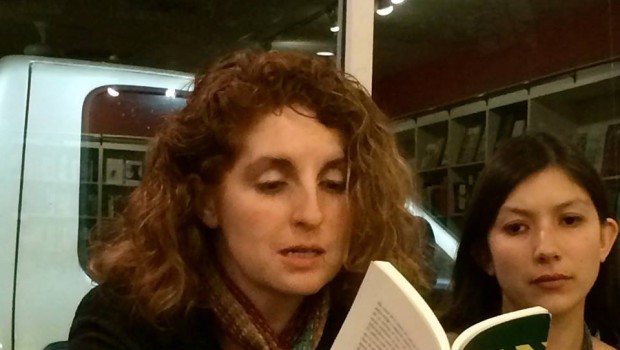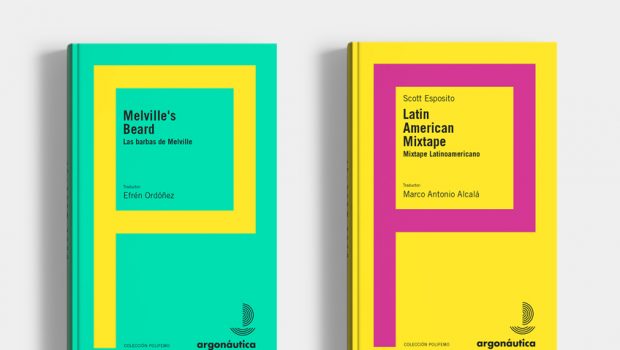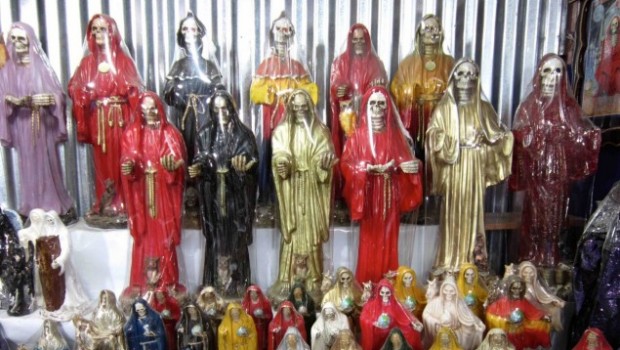Karagiozis´ Exile
Perikles Monioudis
Translated from German by Ingrid Fichtner
In former t imes , a fairy tale character named Karagiozis was very well known in Asia Minor. Karagiozis, in fact, was not really a fairy tale character but the main character in picaresque plays that were usually staged as galanty shows. Furthermore, his name originally was not Karagiozis as the Greeks call him but Karagöz, Turkish for “Black Eye”, and, in sooth, this character still exists today.
Karagiozis has never learned how to read and write, as a matter of principle he lies and steals, owing to circumstances he is clad in rags, he ridicules everything and everybody, and being a hedonist, he is able to fend for himself. He is not interested in politics, he sneers at social conditions whenever he feels like it. He is sly, even if he only dupes himself most of the time–and of course he’s aware of that, too. You have to imagine Karagiozis as a happy man. Together with his wife and children he lives in a dingy hut opposite the pasha’s palace.
He accomplishes the tasks the pasha, his dramatic vis-à-vis, gives him to do–after a fashion. One time, he is ordered to build a window frame from wood, another time to deliver fi sh, or to pick up guests. Of course he does not know how to, and fails. One day, the pasha, having detected that the roof of the hut is missing, calls out: “Hey, Karagiozis, what will you do when it rains?” From the inside Karagiozis answers: “Then I go outside.”
The fact that Karagiozis will get from the rain into the rain is meant as a joke, is the gag in the short exchange between the pasha and him. The allegorical aspect involved applies to the situation of exile, too.
The exiled person leaves his home that has no roof and, thus, does not give any protection, he is, fi guratively speaking, standing in the rain. There’s nothing amusing about that. Karagiozis’ dramatic function to convert destitution and suffering into relieving humor still starts at the point where sorrow and need become unspeakable.
My father’s family was driven from Asia Minor, from Smyrna, today’s Izmir, in 1922. At the same time, Turks were moved from Greek territory to the newly founded Turkish state. Frontiers were established where, for generations, Greeks and Turks had lived together, nation states were constituted with a clearly defi ned territory and with a population as homogenous as possible.
My family emigrated via Chios, the island located off the coast of Izmir, to Alexandria, the British colony, a thriving coastal city situated in the southern Mediterranean. From there, my parents–my mother’s parents had moved to Alexandria from Cyprus–emigrated to Switzerland in 1965.
After Colonel Gamal Abdel Nasser had come to power in 1952, foreigners no longer were allowed to work in Egypt but my parents were permitted to stay since they were employed by the UN. When the UNbase in Gaza was closed prior to the Six-Day War (in 1967), they had to leave the Levant, too.
After having had to leave everything behind in Asia Minor before, they now experienced the same fate in Alexandria.
How does this pertain to me? I was born in the Swiss Alps and grew up well protected and well looked after. To contend I had ever had to leave my home country and accept an insecure fate in some other place in this world simply wouldn’t be the truth.
If we assume that everybody is born alone and that everybody has to die alone–speaking in terms of bare existence–, and, furthermore, assuming that everybody has a moral right to his own biography, which can hardly ever or, rather, never repeat the biography of his parents, I may confi dently say: I’m not in exile. By the way, I don’t feel that way either.
I’m also no migrant. I never migrated, neither emigrated from nor immigrated to any country–I simply traveled a lot and chose to stay and live for longer periods of time in the US and in Germany.
No expatriate, no migrant–what am I? In my latest novel “Land”, there’s this sentence: “He knew that, under certain circumstances which might be his circumstances, it may take only one generation for the refugee to become a flâneur.”
Even though a number of my characters are strollers, I don’t think that this “flâneur” depicts me. Besides the fact that the former refugee, who is not me, could become a flâneur, I myself am no flâneur at all. The flâneur walks through the streets and watches everything, above all in order to impose his own ideas on whatever he sees. That’s a legitimate approach in literature, after all.
I think, however, that Elias Canetti or Walter Benjamin, e.g., can be seen, at least to a certain but not really large extent, as flâneurs of this kind. In any case, both lived in exile. Canetti had tried to settle down in Zurich, Benjamin died in Portbou, trying to flee to Spain.
No exiled person, no migrant–what am I? It’s very simple: I am a Swiss citizen of Greek background. This may seem paradoxical to some, it is very natural to me, though.
The Swiss landscape I was born into is my landscape, the people living there are my folks, their customs and conventions are my customs and conventions, and, last but not least, their language, a Swiss German mountain dialect, is my language. It’s not only what I know best, it is so to say all I really know.
Of course, once in a while there are voices objecting. Very often, it is not done intentionally–my Greek name does not hint at Swiss circumstances. I am not talking now about those notorious people who think Switzerland belongs to the Swiss. What intrigues me is the fact that, for a lot of people, it is the name that seems to be the only indicator as to which society or community a person belongs to. But this, too, can have its advantages.
As a pupil, I once had to hear that poor Perikles must have a bitter fate. And that he would never be able to deeply empathize with one language or one culture, neither the Greek nor the Swiss. That was during the seventies. Today, public opinion as well as prevailing pedagogical theories agree that the lives of people with “migration experience” and their children may be enriched by it because they can take advantage of both backgrounds. I’m not so sure this is totally true. The truth might be somewhere in the middle.
Two backgrounds, one generally agrees, might be something especially artists can make use of. A writer who grew up to be bi-lingual is, accordingly, more interesting than his colleague who used the same language at home and in school. This widespread error is taken advantage of by a number of writers. Therefore, in German speaking countries, during the (approximately ten) past years, it has become comparably easy for mediocre writers to make a living off their mediocre writing. Under the one condition that they know how to pretend convincingly he or she is a Croatian or a Turk simply because of their names, even though they do not know anything about Croatia or Turkey. It’s like with the Greek restaurants in Germany. Clients do not realize that, back in Greece, the cook probably was a shoemaker. You cannot blame the shoemaker now, nor the mediocre writer.
At the same time, these days, publishers, literary critics, and scientists tend to accept it if writers with a bi-lingual background do not write along the lines of the biography of their parents or their names alone, but deploy their writing from their own positions, their own curiosity, their own style and motifs in this globalized world, who do not accept positions ascribed to them nor consciously act in correspondence to them.
The latter is true, above all, for writers who really live and write in exile. I used to live door to door with artists from the Maghreb countries or from China, who did, day after day, exactly what I did: delve into our artistic matter. They, contrary to me, were not allowed to show their work in their home country, and in the country they now lived in they had to use pseudonyms for their publications or presentations. Otherwise, their families back home have to, like they had to, and would have to suffer severe disadvantages or repressions.
Karagiozis is no exiled person, he does not live in exile. Not even in some “inner” exile, even if he, in fact, depends on the pasha. He himself determines the way how they deal with each other. Karagiozis has become a character after all. It’s a pity, he didn’t become a writer.
Posted: April 20, 2012 at 7:32 pm










